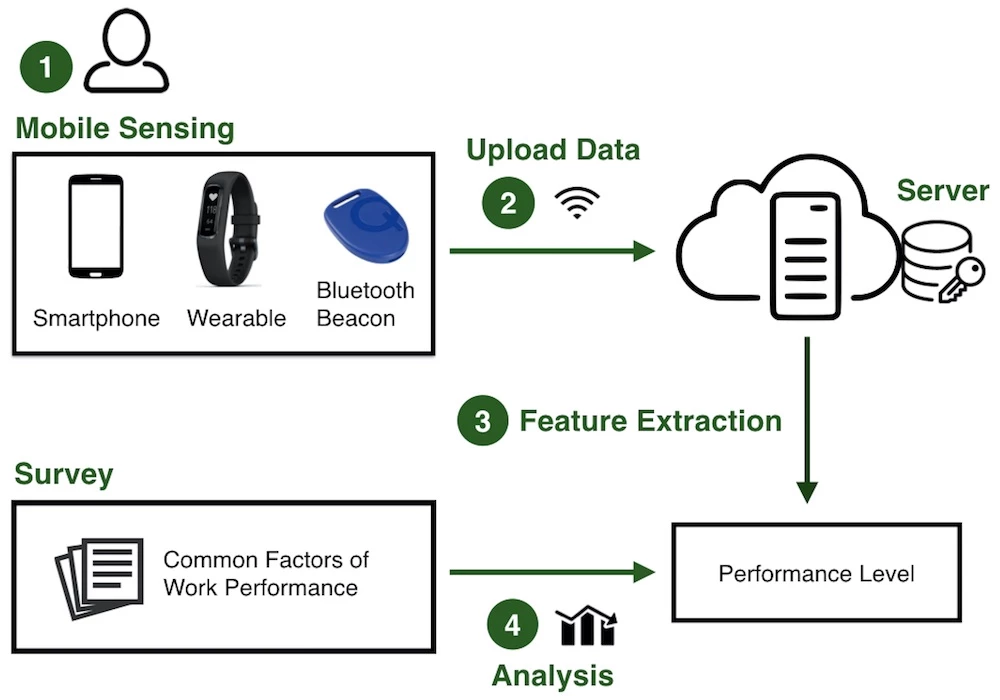Ordinarily, when employers wish to assess the performance of their employees, they have them fill out questionnaires or take part in interviews. A new (and perhaps somewhat Orwellian) system is claimed to be more objective and thus more accurate, however, by utilizing smartphones and fitness trackers.
The passive system incorporates an app known as PhoneAgent, which was developed by Prof. Andrew Campbell at New Hampshire's Dartmouth College. Using the smartphone's own sensors, that app continuously monitors factors such as the worker's phone usage, physical activity level, geographical location, and the ambient light levels of their environment.
PhoneAgent is also Bluetooth-linked to a fitness bracelet worn by the employee, which transmits data including their heart functions, sleep quality, stress levels, and calorie consumption. Additionally, Bluetooth locational beacons in the person's home and workplace monitor how much time they spend at each place, and how often they leave their workstation.

All of the phone, bracelet and beacon data is transmitted to a cloud-based server, where it's processed via machine-learning algorithms that were "trained" on the habits of people already known to be high- or low-level performers. When tested on 750 workers across the US over a one-year period, the system was reportedly able to distinguish between individuals' performance levels (in a variety of industries) with an accuracy of 80 percent. That number should rise as the system is developed further.
Among other things, it turns out that high-performing employees use their phone less, they sleep longer and deeper, plus they're more physically active and mobile. Not surprisingly, they also spend more time at the workplace on weekends.
"The passive monitoring system is meant to be empowering," says Campbell. "This approach could certainly benefit companies, but can also be helpful to individual employees who are looking to boost their performance."
Source: Dartmouth College


